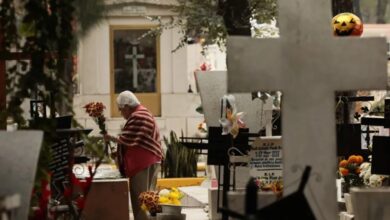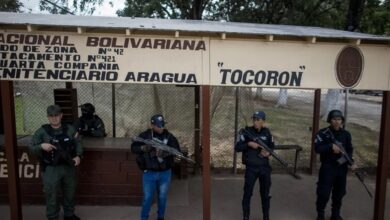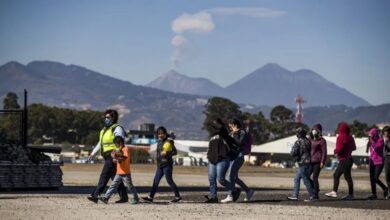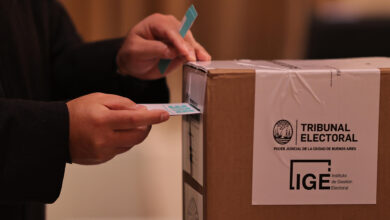Peruvian Shadows: Humala’s Trial, Sentencing, and Political Saga
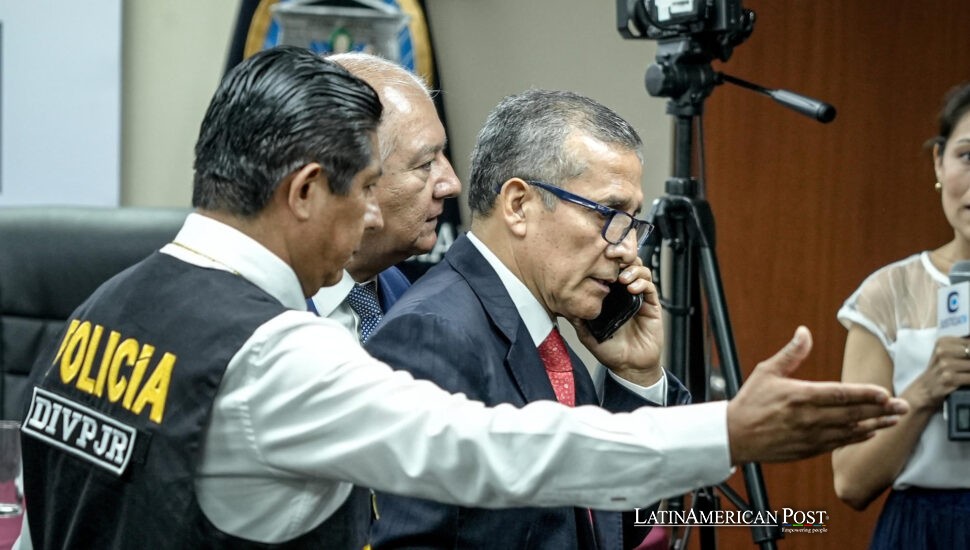
The legal situation for former President Ollanta Humala deteriorated significantly this week when he and his wife Nadine Heredia received money laundering convictions. The sentencing of these officials creates shockwaves throughout Peru by showing how deeply corruption has penetrated modern Andean nation politics.
A Stunning Verdict
Peru went through many major political events. These include forceful government takeovers plus scandals where prominent leaders were involved. The finding of guilt for previous President Ollanta Humala and his spouse, Nadine Heredia, is significant for its involved nature besides the degree of supposed misconduct. On Tuesday, a court in Lima sentenced both to 15 years in prison on money laundering charges, delivering a seismic jolt to a country already reeling from multiple corruption scandals in recent years.
Humala, who served as president from 2011 to 2016, and Heredia—a powerful figure in her own right—had long faced accusations over illicit campaign financing tied to the Brazilian construction behemoth Odebrecht. Prosecutors alleged that the couple knowingly received millions of dollars in illegal funds to bankroll Humala’s presidential bids in 2006 and 2011. Even after repeated denials, the court found the evidence convincing plus issued long prison terms. This ended the couple’s time in public life and damaged their once influential political name.
About corruption in Latin America, the case shows how common it is. Odebrecht had a major part in many important investigations besides guilty verdicts. Not only does Humala’s conviction mark a new chapter in Peru’s fight against graft, but it also sends a message throughout the region that no figure is too prominent to face legal repercussions. The Peruvian public, jaded by years of political misconduct, has reacted with a mixture of relief and skepticism—relief that justice seems to have been served in this instance but skepticism over how much the verdict will truly transform a system perceived as deeply flawed.
The Courtroom Drama
The Lima courtroom was the site for a drawn-out legal process. This process lasted over three years. After the Odebrecht scandal began in 2016, Peru’s legal system faced considerable pressure. Its response needed to show competence with intricate, international cases. These cases concern powerful politicians plus their large systems.
Humala chose to attend the sentencing in person, while Heredia, co-founder of the Nationalist Party, listened through a video link. Both looked visibly tense as the judge delivered the verdict: guilty on charges of money laundering, with matching 15-year prison sentences. The prosecution had sought harsher penalties—20 years for Humala and more than 26 years for Heredia—but the court settled on what it deemed a fair period of imprisonment given the evidence.
The trial focused on bank records and personal accounts that revealed unauthorized money movements to win two electoral contests. Humala’s legal team argued that the financial dealings were lawful campaign contributions, but his political adversaries started a false accusation campaign, yet the judicial authorities agreed with the prosecution’s stance.
Observers noted that Heredia’s sentencing reflects the extent of her involvement: Instead of merely supporting him from the sidelines, she became an active participant who used her influence within the Nationalist Party to advance their goals. Her main involvement in managing both the financial aspects and public affairs of the party led to her becoming a central figure in the prosecution’s investigations.
A Long Road to Scandal
Ollanta Humala ascended to the highest levels of Peru’s political arena well before he aimed for the presidency. His military experience became known in 2000. At that time, he headed a short military uprising directed at Alberto Fujimori’s contested administration. That first act of resistance indicated Humala’s future political character: brave, firm, and in support of popular principles.
Humala entered the political race in 2006 with a leftist platform while developing strong connections with Venezuelan President Hugo Chávez. People criticized Humala for his association with Chávez because they believed he might lead Peru toward Venezuela’s style of governance. Alan García won the election because he managed to exploit the voters’ fear of radical change, while Humala came in second.
Five years later, Humala reinvented himself as a more moderate figure, publicly distancing his campaign from Chávez and instead pointing to Brazil’s then-President Luiz Inácio Lula da Silva as an economic and social model. The strategy worked, and in 2011, Humala bested right-wing candidate Keiko Fujimori—daughter of the same Alberto Fujimori against whom he had once rebelled.
His time as president started with optimism, yet problems arose quickly. Mining disputes and worries regarding the environment diminished public backing. Many felt he did not keep his pledges for change. In 2016, when he departed from his post, Humala had much less political influence. Odebrecht confessed it gave substantial bribes to obtain profitable agreements in many nations in Latin America.
Peruvian prosecutors wasted little time in connecting the dots to Humala. In 2017, he and Heredia were placed in pre-trial detention for a year but were eventually released. Their legal troubles persisted, culminating in the recent verdict that has now changed the course of their lives—and possibly Peruvian politics—forever.
Implications for Peru’s Political Future
Peru’s past leaders experienced several money laundering verdicts in the nation’s history. Corruption accusations have been made against multiple previous Peruvian presidents, among them Alan García, Alejandro Toledo, and Pedro Pablo Kuczynski. The Odebrecht scandal specifically caught various prominent politicians who belonged to different political affiliations. Corruption patterns in Peru caused significant citizen distrust of state organizations. It led to a general feeling of disappointment with the democratic framework.
Corruption in Peru caused significant distrust of state organizations among people, along with disappointment regarding the democratic process.
The Humala-Heredia case judgment will affect more than just their money situation. This result can increase public confidence in the judicial system’s competence to prosecute powerful people. The effectiveness of Peruvian institutions is still unclear: Does this legal action create real institutional change, or does it only function as one important case in Peru’s long fight against corruption?
These sentences happen when Peru sees increased social unrest and political disagreement. Along with repeated leadership changes, have generated protests about problems like inequality, plus the effect of large companies on policy creation. Recent history suggests that each scandal simply paves the way for another, and the real concern among citizens is whether any meaningful progress in transparency and governance can be achieved.
For the Nationalist Party, co-founded by Humala and Heredia, the convictions represent a devastating blow to its credibility. Party members argue that the sentencing was motivated by political vendettas rather than a fair assessment of the facts, but critics counter that this line of defense has been used too often by politicians caught in Odebrecht’s wide net. The question of whether the Nationalist Party can continue as a viable political force without its two most prominent figures remains open.
Finally, the former president’s fall from grace holds lessons for leaders across Latin America who may be tempted to strike secret deals or accept funds under the table. Citizens in this area show growing intolerance for corruption. They organize protests and use social media. This puts pressure on authorities. The objective is to hold the powerful accountable for their deeds. The public’s improved willingness to investigate once-concealed events indicates a shift in public sentiment despite the slow pace of legal processes.
But Ollanta Humala’s story is significant. The story of Ollanta Humala features both a rebellion and a victory in elections before ending in prison. The political environment in Peru shows its unstable characteristics through this sequence of events. This instability continues to affect the country. The country of Peru deals with challenges that include economic inequality among its citizens, institutional corruption, and environmental conflicts. The impact of Humala’s conviction on public trust and its potential as a warning about political ambition’s dangers is still unknown. Yet, in a nation where ex-presidents often find themselves behind bars, it may take more than one high-profile sentencing to restore the confidence of the Peruvian people.
Also Read: Dominican Nights Lost with Jet Set’s Last Dance
For now, the message is loud and clear: even those who attain the highest offices can face dramatic falls from grace when their dealings cross the line into illicit territory. And in Peru, a nation whose political history is marred by deep-seated corruption, the sentencing of Ollanta Humala and Nadine Heredia offers a stark reminder that the courts are watching—and so are the people.


